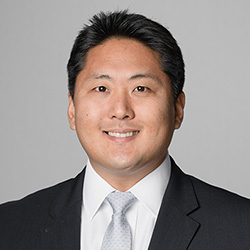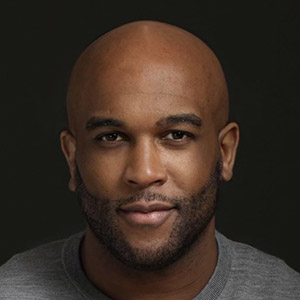Almost two years ago, Alvin Huntspon took on the role of Head of ESG Strategy & Engagement at Uber to support the evolution of the company’s ESG program and strategy. In our interview, Alvin discusses how Uber is engaging with its stakeholders to advance sustainable mobility, from improving zero-emission vehicle adoption, to enhancing labor outcomes and safety standards for drivers, couriers, users, and communities.
What got you excited to oversee Uber's ESG strategy?
Uber’s mission: To reimagine the way the world moves for the better – resonated with me. In my role, I work collaboratively with our Uber team members who share the same passion and commitment for the company’s mission.
I’ve worked in the corporate governance space for over a decade and have watched it grow in many ways. Being able to carry my prior experiences into this role, especially at a company that is so innovative, was an exciting opportunity for me. I’ve enjoyed building on this next chapter in my career and supporting our ESG program as it evolves.
“Uber’s mission: To reimagine the way the world moves for the better – resonated with me. In my role, I work collaboratively with our Uber team members who share the same passion and commitment for the company’s mission.”
How is Uber's focus on its ESG priorities aligned with the company’s overall mission and strategy? How is oversight of ESG embedded within the organization?
ESG is integral to the success of our business. Since going public in 2019, we’ve been incredibly proud of our growth and the progress we’ve been making on many fronts. Closely tying our ESG priorities to our business priorities helps us stay focused on what matters most to our business and our stakeholders.
With that, we’ve integrated five principles into our ESG strategy:
- Prosperity for all our stakeholders
- Equity & access so that our platform is accessible to the greatest number of users and our workforce demonstrates the diversity of the communities we serve
- Environmental sustainability as we transition to a zero tailpipe emissions and low-waste platform
- Physical safety and data security/privacy of our drivers, users, employees, and communities
- Governance, engagement, and transparency ensuring appropriate oversight, prioritizing shareholder engagement, and continuing our journey to best-in-class governance and transparency
We know that when we apply the appropriate governance, engagement, risk analysis, and thoughtfulness in our approach, we protect the areas most integral to our financial performance. Our ESG program is overseen by Uber's Board of Directors and Nominating and Governance Committee. Our ESG team reports into Uber's Chief Legal Officer, while working closely with ESG champions across various business functions globally.
We’ve released various disclosures informed by feedback from our shareholders, including our ESG Report, Civil Rights Assessment, and Climate Assessment & Performance Report (among others). Active engagement with our stakeholders is the foundation of our ESG program and drives increased accountability. We highly value the feedback we receive and report back to Management and our Board on what we have heard.
“Closely tying our ESG priorities to our business priorities helps us stay focused on what matters to our business and our stakeholders.”
How does Uber view its role in supporting the decarbonization of the transportation sector? What initiatives are underway to back the company’s ambition of becoming a zero emissions and low waste platform?
Uber has been proactive in establishing ambitious goals that seek to align the company to its corporate values, including its commitment to more sustainable operations over the long term.
One of our main initiatives is to help drivers get into zero-emission vehicles as fast as possible. We’ve committed $800 million in resources to help hundreds of thousands of drivers start to switch to electric vehicles (EVs). For example, we’re building smart features into the Uber driver app such as battery-aware matching. This feature filters trip requests based on a driver's battery level so they can take trips that end near a charger and avoid trips that are too long for their battery. We’re also offering discounts on EV charging through industry partnerships.
We continue to be committed to reducing reliance on car ownership in the long run to make cities more livable. We strongly believe that the future will be shared and electric. That’s why we offer car-free alternatives like e-bikes, e-scooters, and public transportation in the app. This is a team sport, which is why we're also working with local policymakers, governments, and research institutions to better understand how we can invest in partnerships and incentives to help couriers transition to e-bikes, EVs, and other zero-emission alternatives.
On the waste side, we have set two ambitious goals (1) to end all unnecessary plastic waste from deliveries, and (2) to eliminate emissions on all Uber Eats deliveries globally in the future. With nearly 1 million merchants in 30+ countries, alongside millions of couriers and drivers, we believe Uber has an important role in delivering a greener future. We aim to be the first global delivery tech platform to support the transition to more sustainable packaging, not just for Uber Eats merchants, but for the broader restaurant delivery ecosystem.
“We continue to be committed to reducing reliance on car ownership in the long run to make cities more livable. We strongly believe that the future will be shared and electric.”
How does Uber manage key labor and safety risks and prioritize the well-being of its workforce, customers, and communities?
Labor will always be a key focus of ours. We’ve made great progress in effectively communicating our position in each of our markets and advocating for drivers and couriers using our platform. We believe that good work should provide platform workers with flexible, fair, and transparent earning opportunities.
Drivers and couriers overwhelmingly choose platform work because they value the flexibility to work when, where, and how they want, as reflected in various surveys conducted across multiple markets. To meet the needs of our drivers and couriers, we’ve made many app improvements and built new features that focus on enhancing flexibility, transparency, and choice.
We also actively engage with drivers and couriers to collect and act on feedback, in places like the US, India and Australia, participatory approaches such as Uber Crew and Advisory Councils enable drivers and couriers to represent their peers in direct dialogue with Uber. Furthermore, we have also built global and local partnerships with labor unions, including the International Transport Workers’ Federation (ITF).
Regarding safety, we firmly believe that our work on safety is never done. We keep safety at the forefront, which is why “Stand for Safety '' is firmly embedded into how we operate as an organization. We've worked very hard to prioritize safety features, to make earning on Uber safer. For example, we improved our in-app navigation to suggest fewer left turns, enabled in-app audio and video recording, and are working on expanding the verification of riders' identities.
What are the biggest challenges and opportunities for Uber over the next decade from your perspective?
Because ESG has evolved so quickly and encompasses such a broad field, I think the most significant short- and mid-term challenge will be navigating the numerous regulatory schemes globally.
On the other hand, we are in a period where it seems like there’s exponential opportunity for technological growth, and I’m excited to see what type of impact our industry can have. For a company like Uber that strives to improve the lives of people within the communities in which we operate, we are hopeful that continued technological advancement will enable us to work more quickly and create a greater positive impact on the world.
“We are in a period where it seems like there’s exponential opportunity for technological growth, and I’m excited to see what type of impact our industry can have.”

Moses Choi
Managing Director, Sustainable Finance
Featured Guest:

Alvin Huntspon
Head of ESG Strategy & Engagement, Uber